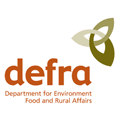News
National Park schemes to lessen impact of climate change

The Yorkshire Dales National Park Authority (YDNPA) is working hard to help local people to offset the effects of climate change. National Climate Change Week, which starts today (March 21), aims to highlight the positive steps being taken in communities and organisations across Britain to combat the effects of climate change - the greatest environmental challenge facing the world today.
The beautiful landscape of the National Park is also playing a part in offsetting the impact of climate change through its trees, soils and peatland.
The Yorkshire Peat Partnership (YPP) – funded and led by staff from the Yorkshire Dales and North York Moors National Park Authorities, the Yorkshire Wildlife Trust, Natural England, the National Trust and the Environment Agency – aims to work with local landowners to restore 34,000 hectares of peatland by blocking drainage ditches, restoring eroding gullies and returning plant cover to bare peat.
Dr Tim Thom, the YPP Project Manager and the YDNPA’s Senior Wildlife Conservation Officer, said: “Healthy peat is a major absorber of carbon – hence its historical use as fuel – locking it away rather than sending it into the atmosphere, a process that may contribute to climate change.
“Unfortunately, the beautiful Dales landscape is marred by large brown scars and deep gashes from patches of bare peat and eroding gullies. These have been caused mainly by human action in the last century, such as the introduction of artificial moorland drainage, as well as accidental wildfires. This has left the peat to dry out and erode away. Now, we are working with landowners to help them to restore a more natural balance across large swathes of the National Park."
“Members of the public can help by always using peat-free compost and refusing to buy plants that are grown in peat. They can also find out if their local authority has signed the peatland protection charter – and if not, ask why. And they can visit a peatland nature reserve and experience the unique and beautiful environment first-hand.”
On another front, the YDNPA is developing a Forest Habitat Network, which was started six years ago and creates new areas of woodland linked by vegetation ‘corridors’ that provide cover for animals as they move between the areas.
Geoff Garrett, the YDNPA’s Senior Trees and Woodland Officer, said: “It’s widely accepted that woodland plays an important part in helping to reduce the amount of carbon dioxide in the atmosphere and creating safe havens for wildlife."
“Over the last six years, the Dales Woodland Restoration Programme has funded the creation of 450 ha of new native woodland in the National Park, almost all of which is on privately-owned land. The Programme is jointly-funded by the Forestry Commission, the Yorkshire Dales Millennium Trust and the Authority."
“We now aim to plant about 100 hectares of woodland a year for the rest of this decade – that’s about 100,000 trees.”
Across the National Park, local people are leading the way in showing how renewable technologies can be used to provide power, save money and create environmental benefits.
Two hydropower schemes in the Yorkshire Dales National Park are set for completion this spring.
The biggest of the two, a community project on the River Bain at Bainbridge, is due to reach a milestone on Wednesday when a huge Archimedes screw that will drive the generator is lowered into place. It will generate enough electricity to power 40 houses, saving 80 tonnes of CO2 per year.
The other scheme involves using water from a small stream falling from a great height at Manor Farm, Halton Gill. This farm diversification project will provide an upland farm with an alternative source of long-lasting income with low maintenance and running costs. The projected energy generation will be equivalent to the consumption of 20 to 25 households.
Both projects received £50,000 from the YDNPA’s Sustainable Development Fund, which is managed by the Yorkshire Dales Millennium Trust.
As well as providing funding to support the Halton Gill and Bainbridge projects, the Authority has already helped to get schemes off the ground at Gayle Mill and Yore Mill and assisted Farfield Mill at the design stage. It has also funded feasibility studies for community projects at Clapham, Ingleton and West Burton, as well as a number of schemes put forward by private landowners.
Information about the YDNPA’s Small-Scale Hydro Power Feasibility Fund and links to other sources of funding can be found at www.yorkshiredales.org.uk/renewables-grants.
The Yorkshire Dales National Park Authority together with the Energy Saving Trust and Sustainability 4 Yorkshire has launched a Green Communities programme to provide free advice and support to communities within the Yorkshire Dales LEADER area.
A coordinator is working alongside selected communities for up to two years to help them to understand their carbon footprint and develop a realistic action plan to reduce it.
The communities participating in the project are Clapham, Grassington and Threshfield, Horton-in-Ribblesdale and Stainforth, Malhamdale and Raydale. As well as supporting them, there may be scope to help other communities with carbon saving projects. Worn out items of uniform donated by the Yorkshire Dales National Park Authority have been given a new lease of life by students studying for a diploma in fashion at Craven College in Skipton.
And their hard work will be on show at the YDNPA-owned Dales Countryside Museum in Hawes from today (March 21) as part of national Climate Change Week.
The students have taken the old clothes and turned them into a variety of chic creations.
Museum Manager Fiona Rosher said: “It’s amazing what they have done with them. It just goes to show what you can do with some flair and imagination.”
The clothing will be on show with the Museum’s ‘It's Rubbish’ exhibition, which focuses on the types of things people can do to become more sustainable in the home by simple things like recycling and turning off taps and light switches.
The new climate change section of the YDNPA website at www.yorkshiredales.org.uk/climatechange gives details of all the projects mentioned and information on how you can be ‘greener’ too.
You may have found us by using the following keywords: Our Climate, Climate Change Partnership, Climate Change, Regional, Adaptation Sub-Group, Adaptation, Local Authorities, Strategy and Monitoring, Built Environment, Transport, Health Services, Business, Land Management, Citizen Engagement, Energy, Waste, Water, Carbon, Flood risk, Mitigation, Leadership, Low Carbon Products, Low Carbon Services, Zero Carbon, Integrated Regional Strategy, Yorkshire and Humber Strategy, Climate Change Act, Regional Adaptation Study, Climate Change Plan for Yorkshire and Humber, Climate UK, Regional Coordinator, Low Carbon Economy, Bio-mass, Carbon Capture, Microgeneration, Local Area Climate Change Network, YoHr Space, Climate Change Board, Impacts, Vulnerability, Opportunities, CO2, NI188, NI186, NI185, NI187, Temperature, Rainfall, Extreme weather






